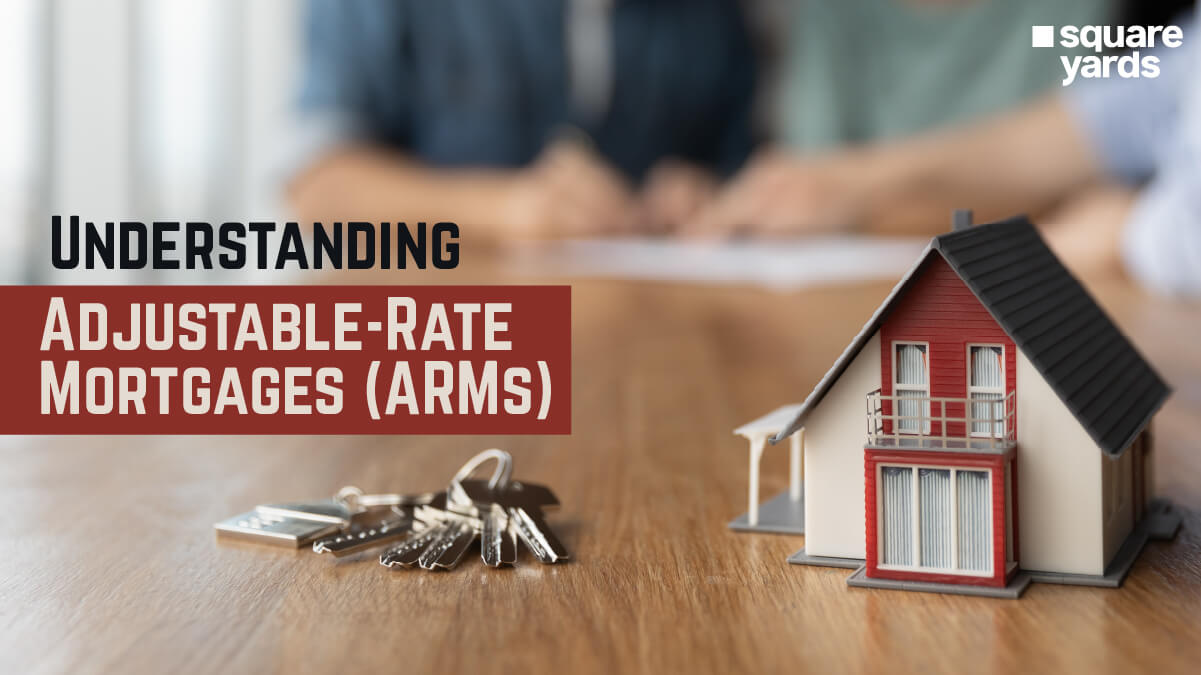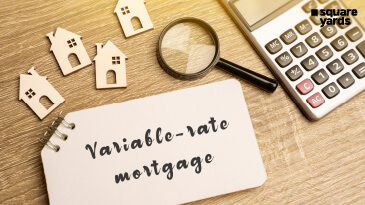Feeling trapped under the weight of multiple debts? Credit card balances, car loans, and personal loans piling up, leaving you juggling payments every month? What if there was a way to simplify all of this—merging those bills into one, and at a lower interest rate, too? Enter debt consolidation Canada through your mortgage or a Home Equity Line of Credit (HELOC).
For Canadian homeowners, this could be a financial game-changer. By using the equity in your home, you can tackle high-interest debts head-on, saving money on interest and reducing stress. But how exactly does this work, and is it the right move for you? In this guide, we’ll break down everything you need to know about using a mortgage or HELOC to consolidate your debts and regain control of your finances step by step.
What is Debt Consolidation Canada?

Debt consolidation Canada is a financial strategy designed to simplify debt repayment by combining multiple debts into a single loan or line of credit. Essentially, it’s merging several outstanding balances—such as credit card debt, personal loans, or other high-interest obligations—into one consolidated debt. By doing this, borrowers can streamline their payments and potentially lower their overall interest rate, as consolidated loans often come with lower interest rates than the original debts.
According to a textbook definition, “Debt consolidation Canada is the act of taking out a new loan to pay off multiple liabilities and consumer debts, typically unsecured ones. The new loan, ideally, comes with more favourable repayment terms, such as lower interest rates or reduced monthly payments, making it easier to manage financially.” This approach is especially attractive to individuals who are struggling with managing multiple high-interest debts, as it provides relief by reducing the number of payments they need to make each month.
Debt consolidation Canada can be accomplished through several methods, including personal loans, balance transfer credit cards, mortgages, and Home Equity Lines of Credit (HELOC). For homeowners in particular, leveraging a mortgage or HELOC can be an efficient way to consolidate debt, as these options often offer significantly lower interest rates compared to unsecured loans. However, while debt consolidation can provide relief, borrowers must understand the risks involved—such as turning unsecured debt into secured debt—and to ensure that they’re using this strategy as part of a long-term plan to become debt-free rather than as a temporary fix.
Advantages of Consolidating Debt

Consolidating debt can offer numerous advantages, particularly for individuals struggling to manage multiple high-interest debts. Here are the key benefits of consolidating debt:
Lower Interest Rates
One of the most significant advantages of debt consolidation Canada is the potential to secure a lower interest rate. When debts such as credit cards and personal loans are consolidated into a single loan or line of credit, such as a mortgage or HELOC, borrowers can often lock in a much lower interest rate. Credit card interest rates can range from 18% to over 20%, while a mortgage or HELOC typically offers interest rates of 3% to 6%, depending on market conditions. Lower interest rates mean that more of your monthly payment goes toward paying off the principal balance, helping you eliminate debt faster while saving money on interest in the long run.
Simplified Repayment Process
Managing multiple debt accounts can be confusing and stressful, with different due dates, payment amounts, and interest rates. Debt consolidation Canada simplifies this process by combining multiple debts into one. Instead of juggling various payments, you now only need to worry about a single monthly payment to one lender. This can reduce the likelihood of missing a payment, negatively affecting your credit score. A simplified repayment plan makes it easier to track your progress and stay on top of your financial responsibilities.
Improved Cash Flow
Consolidating debt can improve your overall cash flow by reducing the monthly amount you need to pay. Since debt consolidation loans often come with lower interest rates and extended repayment terms, monthly payments can be lower than what you were paying across multiple debts. This frees up cash that can be used for other financial goals, such as building an emergency fund, investing, or simply improving your day-to-day financial stability. By reducing the financial burden, you can have more control over your budget and avoid the risk of falling further into debt.
Potential Credit Score Boost
While the immediate impact of debt consolidation Canada on your credit score may depend on how it’s managed, successfully consolidating your debt can lead to long-term improvements in your credit rating. By reducing the overall debt-to-credit ratio, or credit utilisation, and simplifying payments, debt consolidation can help prevent missed or late payments, which would harm your score. Over time, consistently paying down your debt through a consolidated loan can positively impact your credit score, making it easier to qualify for loans and better interest rates in the future.
Peace of Mind
Lastly, the psychological benefit of consolidating debt should not be underestimated. Dealing with multiple debts, especially high-interest ones, can cause significant stress and anxiety. Debt consolidation can provide relief by offering a clear path forward. Knowing that you are making progress toward paying off your debt through one manageable payment each month can reduce financial stress and give you peace of mind, helping you focus on long-term financial goals.
Steps to Consolidate Debt Into Your Mortgage

Consolidating debt into your mortgage can be an effective strategy to manage high-interest debt. Still, it’s crucial to follow the correct steps to ensure the process works to your advantage. Below is a step-by-step guide to consolidating debt into your mortgage:
Assess Your Home Equity
Check how much equity you have in your home by subtracting your remaining mortgage balance from the current market value of your property. More equity increases your chances of qualifying for debt consolidation through your mortgage.
Check Eligibility
Review your credit score, income, and debt-to-income ratio to ensure you qualify for refinancing or a Home Equity Line of Credit (HELOC).
Choose Between Refinancing or HELOC
Decide whether to refinance your mortgage, which combines your existing mortgage and debts into one new loan, or use a HELOC, which gives you access to your home’s equity as a revolving credit line.
Apply for the Loan
Submit your application with the necessary documentation (proof of income, credit report, etc.) to your mortgage lender or financial institution for approval.
Pay Off Your Debts
Once approved, use the funds from the refinancing or HELOC to pay off your existing debts in full, consolidating them into your new mortgage or credit line.
Start a New Repayment Plan
Begin making a single monthly payment toward your consolidated debt under the new mortgage terms or HELOC repayment plan.
HELOC vs. Debt Consolidation Mortgages: A Comparison

When deciding between a Home Equity Line of Credit (HELOC) and a Debt Consolidation Mortgage, it’s essential to understand how each option works and which is better suited to your financial needs. Both methods leverage the equity in your home, but they differ in terms of structure, flexibility, and costs. Below is a side-by-side comparison to help you make an informed decision:
|
Feature |
HELOC (Home Equity Line of Credit) |
Debt Consolidation Mortgage |
|
Type of Loan |
Revolving credit line |
Fixed or variable-rate loan |
|
Interest Rate |
Variable interest rate |
Fixed or variable interest rate, typically lower |
|
Access to Funds |
You can access funds as needed, up to a pre-approved limit |
One-time lump sum amount |
|
Repayment Flexibility |
Pay interest only on the amount used, with flexible repayment options |
Fixed monthly payments, included in mortgage payments |
|
Purpose |
Ideal for ongoing or future expenses, as it acts like a credit card |
Best for consolidating all debts into one new mortgage |
|
Loan Term |
Open-ended, can borrow and repay multiple times |
Matches the term of your new mortgage |
|
Impact on Mortgage |
Does not change your existing mortgage |
Replace or refinance your current mortgage |
|
Closing Costs |
Typically lower closing costs |
Higher closing costs are similar to a new mortgage |
|
Ease of Access |
Easier to access once set up, can draw funds anytime |
No further borrowing once debt consolidation is completed |
|
Risk |
Higher risk of fluctuating interest rates |
Less risk with a fixed-rate option available |
|
Equity Usage |
Borrow up to a certain percentage of your home’s equity |
Typically requires more equity to refinance the mortgage |
|
Ideal For |
Homeowners needing flexibility and ongoing access to funds |
Homeowners wanting a one-time debt consolidation with predictable payments |
Key Considerations When Consolidating Debt

Consolidating debt through a mortgage or HELOC can simplify your payments and potentially reduce interest rates, but it also involves securing your debt against your home. This means there are several factors you need to assess carefully before proceeding. Below are some key considerations to help guide your decision-making process:
-
- Interest Rates: Ensure the new loan or HELOC offers a lower interest rate than your current debts to maximise savings.
- Loan Term: A longer repayment term may reduce monthly payments but could result in paying more interest over time.
- Fees and Closing Costs: Check for application fees, appraisal costs, and other charges that could increase the overall cost of debt consolidation.
- Impact on Mortgage: Consolidating debt into your mortgage increases your mortgage balance, potentially extending the time to pay off your home.
- Credit Score: Consolidation might temporarily affect your credit score due to inquiries and new credit lines.
- Financial Discipline: Consolidating debt doesn’t eliminate it. You’ll need disciplined budgeting to avoid accumulating new debts post-consolidation.
- Equity Requirement: Ensure you have sufficient equity in your home for debt consolidation, as lenders typically require a minimum equity threshold.
- Risk of Losing Home: By securing debt against your home, you risk foreclosure if you cannot meet the repayment terms.
How to Qualify for a Debt Consolidation Loan
Qualifying for a debt consolidation loan can seem complicated, but it’s quite straightforward if you know the steps involved. Here’s how you can qualify for a debt consolidation loan in simple terms:
Check Your Credit Score
Your credit score plays a big role in getting approved for a debt consolidation loan. Lenders look at your score to see if you’re responsible with borrowing. Generally, the higher your credit score, the better your chances of getting approved and receiving a lower interest rate.
Have a Stable Income
Lenders want to make sure you can pay back the loan, so having a steady job or consistent income is essential. You’ll need to show proof of income, such as recent pay stubs or bank statements, to demonstrate your ability to make payments.
Calculate Your Debt-to-Income Ratio
This ratio shows how much of your monthly income goes toward paying off debt. Lenders use it to measure your ability to handle new debt. A lower debt-to-income ratio improves your chances of getting approved. You can calculate it by dividing your total monthly debt payments by your monthly income.
Have Enough Home Equity (For Mortgage-Based Consolidation)
If you’re consolidating debt through a mortgage or HELOC, you need to have enough equity in your home. Home equity is the difference between your home’s value and what you owe on your mortgage. Lenders typically require you to have at least 20% equity to qualify.
Prepare Your Financial Documents
You’ll need to provide documents like tax returns, bank statements, and proof of any assets you own. These help the lender get a full picture of your financial health before approving the loan.
Choose the Right Lender
Different lenders have different requirements, so shop around to find the best loan terms for you. Banks, credit unions, and online lenders all offer debt consolidation loans with varying interest rates and terms.
Drawbacks of Consolidating Debt Into a Mortgage
Consolidating debt into a mortgage can be helpful, but it’s important to understand the potential drawbacks. Here are some key points to keep in mind:
Risk of Losing Your Home
When you consolidate debt into your mortgage, you’re turning unsecured debts (like credit card or personal loan debt) into secured debt backed by your home. This means if you can’t keep up with your mortgage payments, you risk losing your home to foreclosure.
Extended Loan Term
While consolidating debt into your mortgage may lower your monthly payments, it can also extend the length of time you’re paying off your mortgage. This could mean staying in debt longer and paying more interest over the life of the loan.
Closing Costs and Fees
Just like when you first got your mortgage, there are closing costs and fees involved in refinancing your mortgage for debt consolidation. These costs can add up and might reduce the financial benefit of consolidating your debt.
Temptation to Rack Up More Debt
Consolidating debt can give you a sense of relief, but if you’re not careful, you might end up racking up new debts on your credit cards and loans. Without careful financial planning, you could end up in the same or worse situation.
Interest Rate Risk (If Variable)
If you choose a mortgage or HELOC with a variable interest rate, your payments could increase over time if interest rates rise. This could lead to higher costs down the line and affect your ability to make payments.
Equity Reduction
Using your home equity to consolidate debt reduces the amount of equity you have in your property. This means you may have less financial flexibility in the future if you need to borrow against your home again for other reasons, like home repairs or emergencies.
Conclusion
Consolidating debt through a mortgage or HELOC can be a powerful tool to simplify your finances, lower interest rates, and reduce monthly payments. However, it’s not without risks. Turning unsecured debt into secured debt tied to your home requires careful consideration, as it increases the stakes—particularly if you face difficulties in making payments. Before moving forward, evaluate your financial situation, weigh the pros and cons, and ensure you have a clear plan to avoid accumulating new debt. With the right approach, debt consolidation can be a step toward better financial health and stability.
You May Also Read :
|
What is Readvanceable Mortgage in Canada |
|
|
Guide To Adjustable Rate Mortgage |
|
|
Meaning of Halal Mortgage in Canada |
|
|
Know The Tax Deductible Mortgage Strategies |
|
|
Process of Early Mortgage Renewal |
Frequently Asked Questions (FAQs)
Will Debt Consolidation Affect My Credit Score? Yes, debt consolidation can temporarily lower your credit score due to new credit inquiries, but over time, making consistent payments can improve your score.
Technically, yes, but it’s recommended to avoid using credit cards to prevent accumulating more debt and undoing the benefits of consolidation.
Potential downsides include longer repayment terms, added fees, and the risk of losing your home if you consolidate debt into a mortgage.
If you’re struggling with multiple high-interest debts and want lower payments, debt consolidation can be a good option, but ensure it aligns with your financial goals.
Debt settlement can negatively affect your credit score, as settling for less than you owe signals to lenders that you didn’t fully repay your debts. Will Debt Consolidation Affect My Credit Score?
Can I Continue Using My Credit Cards After Debt Consolidation?
What Are the Potential Downsides of Debt Consolidation?
Should You Consolidate Your Debts?
How Does Debt Settlement Impact Your Credit Score?











